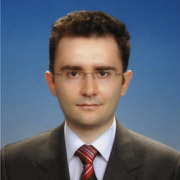An Investment in the Internet is an Investment in People
Story of Successful Internet Access in Bulgaria
by Mei Lin Fung, People Centered Internet
IEEE Internet Initiative eNewsletter, November 2016
A lesson in Economics 101 played out in real life when the Internet was introduced to Bulgaria, even as the country experienced a severe financial crisis. While the success of Estonia in deploying the Internet to deliver government services, health and education is well known, Bulgaria’s story deserves more public recognition because other countries can learn from it and can use the Internet to gain competitive advantages. Yuliana Angelova tells us what happened:
The Internet in Bulgaria: Key role in achieving the Sustainable Development Goals – SDG’s
Bulgaria has a very positive example of connecting the unconnected, and is relevant for both developing and underdeveloped countries
Our first biggest expansion of Internet users happened in 1996 - 1997, parallel to the biggest economic crisis the country has experienced in the last 25 years. The national currency exchange rate to the USD changed from about 74:1 to 2387:1, so more than 30 times, from February 1996 to February 1997 [1].
In addition to implementing severe fiscal policy, new laws, including setting up Currency board, the Bulgarian government decided in 1999 that it will allow Internet access to be provided without any restrictions whatsoever. There would be no licenses, not even registration for the Internet service providers (ISPs). After public discussion and a case at the Bulgarian Supreme Administrative Court, ultimately, this came about as an out of court agreement between the government and the Internet Society of Bulgaria (ISOC) [2].
The results were stunning - within a few years, Bulgaria, a country with 7 million population, had about 2,000 ISPs. The prices of services went down to as low as Euro 10 per month, and the speed went up, jumping from the dial-up services directly to fiber-optic, so to speed of up to 1000 Mbps (1 Gbps).
A curious fact: one of the Bulgarian ISPs was later sold to the Hungarian division of Deutsche Telecom, and the Bulgarian co-founders moved to India, where they are building a new Indian ISP. Down the road, Bulgaria attracted other foreign investors in the ISP - among them other European telecoms, but also pure financial investors, and the market continues to grow today, even though slower.
Since then, changes in the legislation introduced digital documents, digital signatures, and most recently – as of June 2016, the creation of a new governmental body – an agency to the Council of Ministers to deal with e-government and e-governance. We coordinate and cooperate with the broader Internet community, ISOC-Bulgaria, academic institutions, as well as other organizations and interested experts. All this helps immensely in adopting the best technologies, and we tap the best people available.
In 2015, the 2030 Agenda for Sustainable Development was agreed to at the United Nations Summit. The 2030 Agenda recognizes that the Information Computer Technologies (ICTs) have great potential to accelerate human progress. Bulgaria is defining its national priorities in that regard. For example, a successful 2015 referendum led to ongoing process to develop a system in place so that people can vote electronically.
Our Bulgarian model of widespread, fast and affordable internet access enabled this economic impact:
- ensured that thousands of small businesses entered the market, thus encouraging competition;
- brought a lot of foreign investment in the sector (both from financial and telecom investors);
- allowed several whole new industries to develop, like outsourcing of software development, VoIP, and IP television
Yuliana Angelova
First Secretary, Permanent Mission of the Republic of Bulgaria to the United Nations
What the Internet has enabled is growing economic opportunity for young people and all working people as many more small businesses and new industries have emerged. The idea that we can Connect to Thrive – is playing out in the following ways:
- By having access to knowledge from around the world, people get new ideas for what they can do to express their passions, use their skills and develop their talents
- By easily communicating with each other through affordable Internet individuals are not isolated and form teams to encourage and motivate each other to break through new frontiers
- Small businesses find employees, discover customers and open channels to new markets for their products and services, they have a path to growth which is no longer limited by the national boundary
- Organizations can cooperate and partner with one another to better serve their customers and coordinate activities between one another – this makes for a more efficient supply chain through rapidly shared information enabling agile response to changes in the business ecosystem in Bulgaria and the world
- The Bulgarian government, policy makers, and community leaders can have a shared overall picture of what is going on and work together to raise the economic and social opportunities for the Bulgarian people
- The educational picture for Bulgaria is no longer limited to the formal learning institutions, but the entire country by being connected is able to thrive as each person has the chance to learn the skills and acquire the knowledge to find and seize new opportunities.
Bulgaria by making the Internet affordable and accessible has opened a great gateway for the people of Bulgaria to take ownership of their future and connect with the rest of the people in the world. They have discovered that “We all win, when we all win”. Bulgaria is an inspiration to the rest of the world that an investment in the Internet is an investment in people.
References:
[1] Exchange rate BGN/USD
http://stat.web.antipodes.bg/en/indicator/593/
[2] Hot News: NO licensing for the ISPs in Bulgaria!
http://isoc.bg/kpd/index2-eng.html
 Mei Lin Fung
Mei Lin Fung
Mei Lin Fung is the organizer for the People Centered Internet, which she co-founded with Vint Cerf, one of the fathers of the Internet. For over 30 years in Silicon Valley she has been a wife and mother and was an early pioneer of Customer Relationship Management (CRM), now a US $27 billion industry. CRM started as a skunkworks project, OASIS, championed by Tom Siebel and nurtured by Marc Benioff, who later left Oracle to found SalesForce. Living in Stanford, she worked at Intel and Oracle during the rise of Silicon Valley.
As a Singaporean she has seen unprecedented economic growth where a third-world country increased GDP per capita over 50 years to over 20% higher than the US. She served on the US Defense Health Futures project from 2009-2013. She has been a board member of the National University of Singapore America Foundation since 2007. She co-founded Program for the Future and is the founding unit coordinator of the California Health Medical Reserve Corps.
Editor:
 Dr. Onur Alparslan
Dr. Onur Alparslan
I received B.S. and M.S. degrees from Bilkent University, Ankara, Turkey, in 2002 and 2005, in electrical and electronics engineering. I received Ph.D. degree from Osaka University, Japan, in information science and technology, in 2008. I was the recipient of Monbukagakusho Graduate Scholarship from the Ministry of Education, Science, Sports and Culture of Japan between 2005–2008. I worked as a post-doctoral researcher at Osaka University from 2008 to 2016. Now I am a visiting researcher at Osaka University since 2016. My research interests are optical networks, traffic engineering, network function virtualization (NFV) and simulation. I was the recipient of “Best Paper Award” at the First International Conference on Evolving Internet (INTERNET 2009). I have published over 20 papers in international journals and conferences, many of which are in IEEE journals and conferences. I have worked on many government funded projects on computer networks and telecommunications in Europe and Japan. I became a student member of IEEE at 2002 when I was a B.S. student. Currently, I am a member of IEEE in Kansai Section of IEEE Region R10
Article Contributions Welcomed
If you wish to have an internet policy related article considered for publication, please contact the Managing Editor of Technology Policy and Ethics IEEE Future Directions Newsletter.
Past Issues
IEEE Internet Policy Newsletter Editorial Board
Dr. Ali Kashif Bashir, Interim Editor-in- Chief
Dr. Syed Hassan Ahmed
Dr. Mudassar Ahmad
Dr. Onur Alparslan
Dr. Muhammad Bilal
Dr. Syed Ahmad Chan Bukhari
Dr. Ankur Chattopadhyay
Dr. Junaid Chaudhry
Dr. Waleed Ejaz
Dr. Yasir Faheem
Dr. Prasun Ghosal
Dr. Tahir Hameed
Dr. Y. Sinan Hanay
Dr. Shagufta Henna
Dr. Fatima Hussain
Dr. Rasheed Hussain
Dr. Saman Iftikhar
Dr. Stephan Jones
Dr. Mohammad Saud Khan
Olga Kiconco
Dr. Jay Ramesh Merja
Dr. Mubashir Husain Rehmani
Dr. Hafiz Maher Ali Zeeshan
About: This newsletter features technical, policy, social, governmental, but not political commentary related to the internet. Its contents reflect the viewpoints of the authors and do not necessarily reflect the positions and views of IEEE. It is published by the IEEE Internet Initiative to enhance knowledge and promote discussion of the issues addressed.


